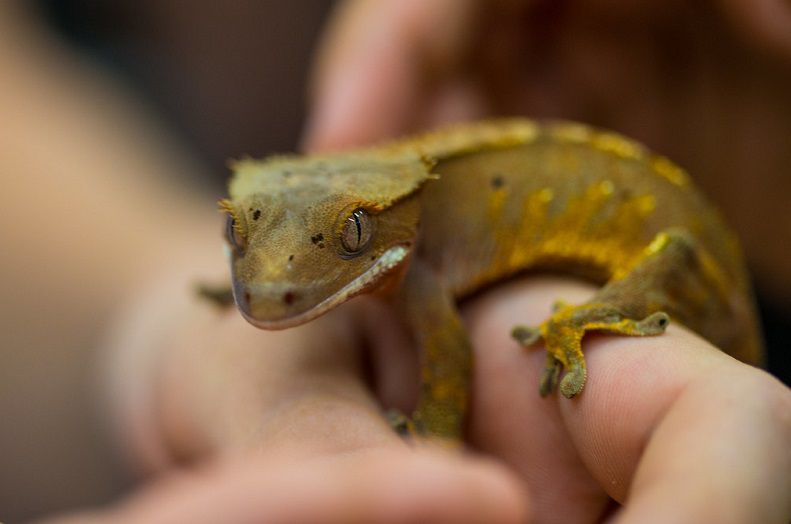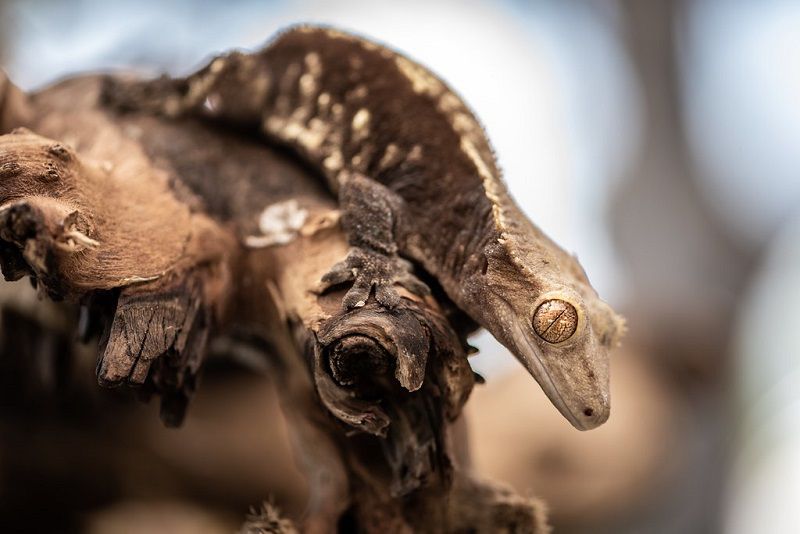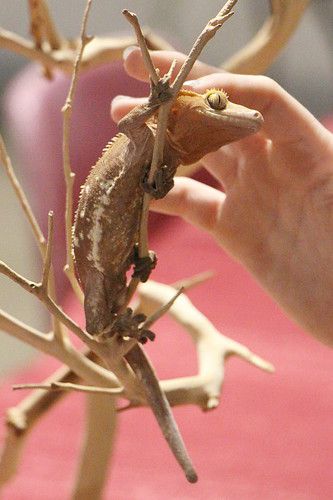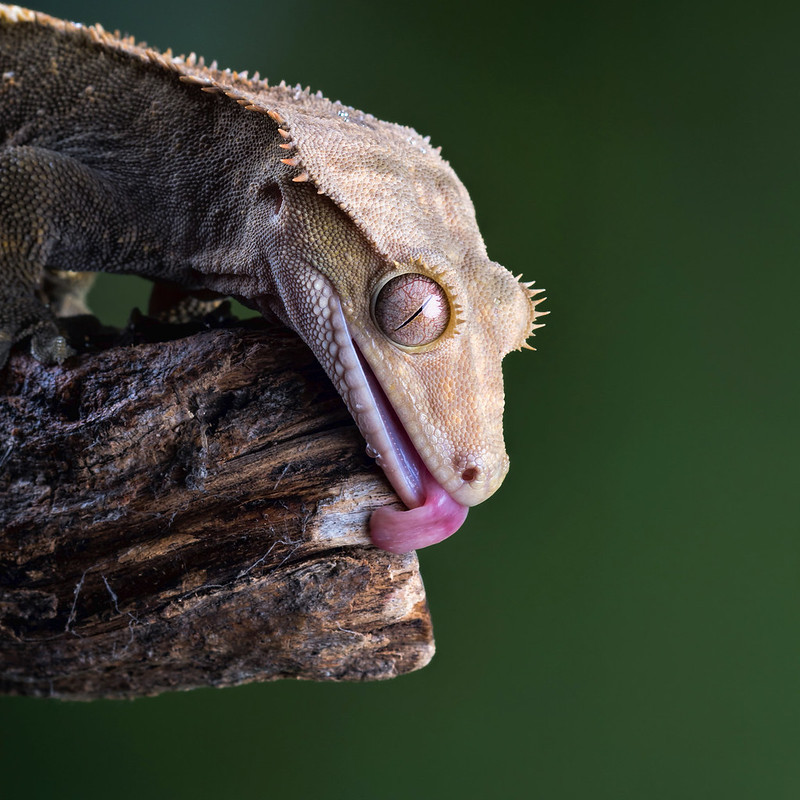Table of Contents
A question I often come across is, ‘why is my crested gecko so small?’ Actually, this is a common concern for many new owners of crested geckos, but before you start to panic, it is important that you know what the average weight of a crested gecko is based on its age.
What is the Average Size of a Crested Gecko?
Advice: Most crested geckos will weigh around two grams upon hatching. After about three months, they will typically weigh three grams and, by six months old, you can expect a healthy crested gecko to weigh between five and six grams.
Crested geckos can grow at different rates, so not all will weigh the exact same at the same age. Some species, such as the dwarf crested gecko (as you can probably tell by the name), will typically stay quite small even at adulthood. However, if you believe that your crested gecko is not growing as it should, then it is worth checking to see if there is a reason for this. Often times, incorrect habitat conditions or diet can delay growth. Below are some of the reasons that your gecko might not be growing as it should.
Poor Diet
Some new owners do not feed the correct food, or indeed the correct amount of food. This, as you might guess, can stunt growth in their gecko. Sometimes a crested gecko might not be eating enough of the food provided. This can happen when the temperature of the habitat is too low.
It is worth bearing in mind that your crested gecko may not actually enjoy the food that you are providing. In the wild, these reptiles will seek out food that they like to eat. In captivity though, they have no choice but to eat what they are given.
Most people use commercial food designed to provide their crested gecko with everything it needs in terms of nutrition. Nevertheless, you need to consider the fact that your pet might not like the brand you are using. If it is not eating much, try changing the food to see if this helps. You can also try different consistencies when it comes to food. It may be that you are making the food too thick or too runny and it is consequently not appealing to your pet. When it comes to feeding crested geckos, just try different things until you get it right. You could also consider offering prey insects such as silkworms, crickets, or roaches from time to time as a treat.

Yellow Crested Gecko 
Crested Gecko 
Crested Gecko
Uncomfortable Environment
It is important to ensure comfortable temperatures and humidity levels in your crested gecko’s habitat. If the temperature is too low, it could cause your pet to eat less and it may also have an impact on its digestion. All these reasons can cause stunted growth, which will in turn have a negative impact on the creature’s health.
Advice: Make sure you have a warm and cool side in the terrarium, with the warm side between 70 and 79F and the cooler side between 68 and 70F.
You can use a heat mat either underneath one side of the terrarium or placed at the rear of the tank to one side (you can find some here on Amazon – opens in a new tab). The temperature gradient will allow your pet to move about and regulate its own temperature.
– opens in a new tab). The temperature gradient will allow your pet to move about and regulate its own temperature.
Be sure to monitor the temperature of the terrarium because if it drops too low it could hinder your crested gecko’s growth.
Humidity is also something that needs monitoring. During the day, levels should be around 70 percent. If the terrarium gets to dry, your crested gecko is likely to become uncomfortable and may start digging into the substrate to cool down. If levels get too high, it could cause fungus and bacteria to grow, which would affect your pet’s health and, subsequently, its growth.
Terrarium is Too Big
It might sound strange to some to think that a terrarium that is too big could affect the growth of their crested gecko, but this is exactly what can happen. Young, crested geckos grow much more quickly in a smaller enclosure, particularly if it is the only one. The reason for this is that smaller terrariums are easier to navigate, making it easier for them to find their food and water.
In a larger terrarium, young, crested geckos can often become stressed, which can lead to a poor appetite and insufficient growth. The maximum recommended size of a terrarium for a crested gecko under one year of age is six gallons. You can increase the size when your gecko is older, if you feel that it needs more space.
Illness
Illness can also be the reason a crested gecko is not growing as expected. However, if your pet is ill then you can expect more symptoms than just slow growth. An ill crested gecko will likely go off its food and it may also be lethargic. You might also notice abnormal feces. If this is the case, it is best to seek advice from a vet.
Conclusion
Crested geckos grow at different rates and often grow in spurts. Nonetheless, if you think your pet is not growing as it should, look to see if there are any external factors causing this slow growth. These could include a poor diet, incorrect environment, or illness.
If you suspect your crested gecko might be ill, it is always best to seek professional advice from a qualified vet.
Photo Credit:
- Featured Image (crested gecko): hehaden
 – CC BY-NC 2.0
– CC BY-NC 2.0 - Yellow Crested Gecko: bionicteaching
 – CC BY-SA 2.0
– CC BY-SA 2.0 - Crested Gecko: Crowbard – CC BY-NC-SA 2.0
- Crested Gecko: StarsApart
 – CC BY-SA 2.0
– CC BY-SA 2.0

